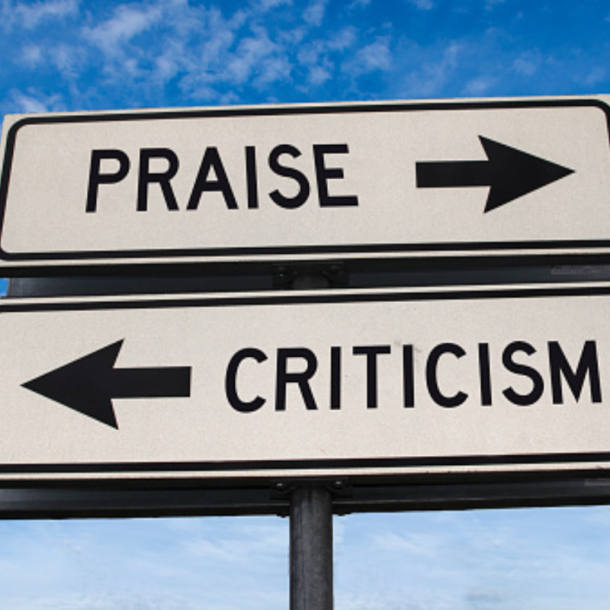
Ethical Decision-making in Business Operations
Ben, I agree with your assessment that an open environment will keep employees on an ethical path. When employees are out in front of one another, they are typically more cautious about what they do. They do not want to be the person who gets caught cheating or doing something illegal right in front of their coworkers and when there is an open environment, they have nowhere to hide, the boss could pop in at any given moment.
This added pressure to do the right thing typically keeps the employees on the straight and narrow. A survey conducted by Ethisphere Institute and Jones Lang LaSalle(2011) found that out of the 200 organizations surveyed, “The statistics indicate that implementing open workspace environments appears to be making an impact, as the majority of respondents (64 percent) have not had any visible ethical violations within the past two years.” By keeping their employees out and visible to all, it discourages unethical behavior. If employees do get out of line, as Ben stated, a coworker will typically steer them back to the correct path. For this reason, I feel open environments are effective.
Reference
Jones Lang LaSalle. (2011, Aug 16). Survey reveals open workspace environments gain favor as companies see improved employee engagement and reductions in ethics violations. Retrieved from http://www.joneslanglasalle.com/Pages/NewsItem.aspx?ItemID=22690
Ben, I share a very similar workplace as you have depicted above. However, I would like to challenge the viewpoint expressed in the video. The video states that an open office atmosphere promotes ethical behavior by discouraging inappropriate internet usage, sexual harassment, and disrespecting colleagues due to close proximity of office personnel. While this may be true, I believe the open office work atmosphere promotes workplace tension, drama, and reduces employee productivity. I currently work in an open office with cubicle departments. Not a single day goes by that I am not distracted by someone passing my cubicle, a person’s laughter, or the common colleague who needs to discuss their life troubles. According to a recent New York Times article, noise is a serious problem in the open-plan office, and speech, because it is directly understood in the brain’s working memory, is the most disturbing type of sound. Likewise, when a conversation carries to an “unwilling listener,” his or her performance measurably declines in cognitive tasks such as reading, writing, and other forms of creative work, (Armstrong, 2012).
Armstrong, Barbara T. May 24, 2012.
Open Workspaces Are Here to Stay. Now, How Do We Get Any Work Done?
http://www.forbes.com/sites/barbaraarmstrong/2012/05/24/balancing-the-needs-for-collaboration-and-privacy-a-tall-order-in-workplace-design/
Rhyne,
I also found some information of the subject to challenge the viewpoint in the video. While it the open environment does hold people more accountable, it does not promote the most productive environment but I guess one can’t have it all. The point you made about the subconscious stimulus to the brain when people are talking around you is so true. An article in Time Ideas supports your findings by saying, “open-plan offices are generally associated with greater employee stress, poorer co-worker relations and reduced satisfaction with the physical environment” (Paul, 2012, para. 2).
Paul, A.M. (2012). Workplace woes: the ‘open’ office is a hotbed of stress. Para. 2. Retrieved 30 July 2013.
Ben, I agree with your assessment that an open environment will keep employees on an ethical path. When employees are out in front of one another, they are typically more cautious about what they do. They do not want to be the person who gets caught cheating or doing something illegal right in front of their coworkers and when there is an open environment, they have nowhere to hide.
This added pressure to do the right thing typically keeps the employees on the straight and narrow. A survey conducted by Ethisphere Institute and Jones Lang LaSalle(2011) found that out of the 200 organizations surveyed, “The statistics indicate that implementing open workspace environments appears to be making an impact, as the majority of respondents (64 percent) have not had any visible ethical violations within the past two years.” By keeping their employees out and visible to all, it discourages unethical behavior. If employees do get out of line, as Ben stated, a coworker will typically steer them back to the correct path.
Jones Lang LaSalle. (2011, Aug 16). Survey reveals open workspace environments gain favor as companies see improved employee engagement and reductions in ethics violations. Retrieved from http://www.joneslanglasalle.com/Pages/NewsItem.aspx?ItemID=22690
The accounting profession has seen sweeping legislative change since the Enron and WorldCom scandals. The Sarbanes-Oxley Act (SOX) became law in 2002 to tighten accounting procedures in an attempt to prevent future accounting fraud [1] The activities involved in these scandals were more than unethical; it was criminal. The accounting profession is extremely regulatory for good reason. Consistency, accuracy, truth, direction, profit/loss performance, and employee livelihood are at stake. Ethical behavior can be closely linked to policies and procedures, but company expectations of employee morality and integrity cannot be overlooked. In my career as an accountant, I am truly proud of working within an organization that fosters ethical decision making. Not only in the financial side of the business, but the company has policies and expectation to ensure employee safety, policies and expectations to protect the environment, and avenues that are available to all staff to voice concerns and report questionable activities. Unethical behavior is not tolerated which sets a positive tone from the top. In my field, financial compliance is critical to continued federal funding
[1] Maleske, M. (January 2012) 8 ways SOX changed corporate governance. InsideCouncil Magazine. Retrieved from http://www.insidecounsel.com/2012/01/01/8-ways-sox-changed-corporate-governance






19 Comments
I work in an open environment as referred to in the video above. I would have to agree with the notion that having an open environment in my office space does promote an ethical environment. The example of how to conduct ourselves is demonstrated for us on a daily basis by the boss. This ethical conduct cannot be warded off due to the daily interaction and just physical presence around it. Also, it’s the boss so you tend to fall in line and mimic this behavior by default. Also, we are a presence in the local community which holds us accountable on another level as well. However, productivity is not a strong suit of this type of environment. Constant interruptions and distractions make it virtually impossible to stay on task for a long period of time (Hazrati, 2011, p.1). However, this is a situation is which it is the only viable scenario given the current layout of our facility. The biggest pro is that it is conducive to promoting an ethical product due to the fact that we know if someone is representing our brand in a negative fashion and we are able to ‘right the ship’ if you will. I agree with the video that ethical standards and the environment start from management position. These are the leaders of the entity and thus must lead a profitable, yet ethical venture.
Hazrati, V. (2011). Open office layout is bad for brain! P.1
Ben,
Good points! Ethics starts at the very top!
Professor Green